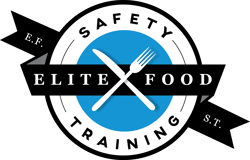
In a world where food safety is paramount, International ServSafe Courses are becoming increasingly essential for ensuring global standards. Discover the significance, language options, and growing recognition of these vital courses.
The Crucial Role of International ServSafe Courses in Food Safety
Food safety is a global concern, with the potential to affect public health on a massive scale. International ServSafe Courses play a pivotal role in mitigating these risks by providing comprehensive training that adheres to rigorous standards. These courses encompass various aspects of food safety, including proper handling, storage, and preparation techniques to prevent contamination and foodborne illnesses.
By standardizing food safety practices across different regions, ServSafe ensures that individuals and organizations are equipped with the knowledge and skills necessary to maintain the highest levels of hygiene and safety. This is particularly crucial in today's interconnected world, where food products often cross multiple borders before reaching the consumer.
Language Options: Accessibility of ServSafe Manager's Courses
One of the key factors contributing to the effectiveness of ServSafe Manager's Courses is their accessibility. The courses are currently available in English and Spanish, which caters to a significant portion of the global population. This bilingual approach ensures that language barriers do not impede learning and comprehension, allowing more food safety professionals to benefit from the training.
While the course itself is limited to these two languages, it is designed to be comprehensive and user-friendly, incorporating lectures, videos, and interactive activities to enhance understanding and retention of the material.
Examination Language Diversity: A Global Approach
In addition to the language options for the courses, the ServSafe Manager's examination offers a much broader range of languages. This is a crucial feature, as it enables non-English and non-Spanish speakers to demonstrate their knowledge and achieve certification in their native languages. The examination is available in multiple languages, ensuring inclusivity and accessibility for a diverse global audience.
This multilingual approach to certification is vital for fostering a universally high standard of food safety, as it allows individuals from various linguistic backgrounds to fully participate and excel in the field.
Recognition in Quebec: A Milestone for ServSafe Manager's Certification
A significant milestone for ServSafe Manager's certification is its recent recognition in Quebec for Level 2 training. This acknowledgment by Quebec authorities underscores the quality and comprehensiveness of the ServSafe program. It allows food safety professionals in Quebec to use their ServSafe certification to meet local regulatory requirements, thereby enhancing the credibility and acceptance of the certification.
This recognition not only validates the effectiveness of the ServSafe program but also sets a precedent for other regions to follow, further promoting standardized food safety practices globally.
Global Benefits of ServSafe International: Elevating Food Safety Standards
The global benefits of ServSafe International are manifold. By providing standardized training and certification, ServSafe ensures that food safety practices are consistent across different countries and regions. This helps to reduce the incidence of foodborne illnesses and enhances public health outcomes.
Moreover, ServSafe certification can boost the professional credibility of individuals and organizations, leading to increased consumer trust and confidence. It also provides a competitive edge in the food service industry, where adherence to safety standards is paramount.
In summary, the international reach and recognition of ServSafe courses and certifications play a crucial role in elevating food safety standards worldwide, benefiting both consumers and food service professionals alike.


.png)
-2.png)
-2.png)
.jpg)
